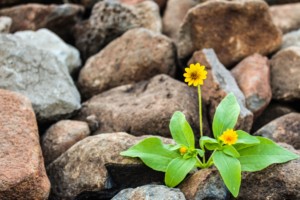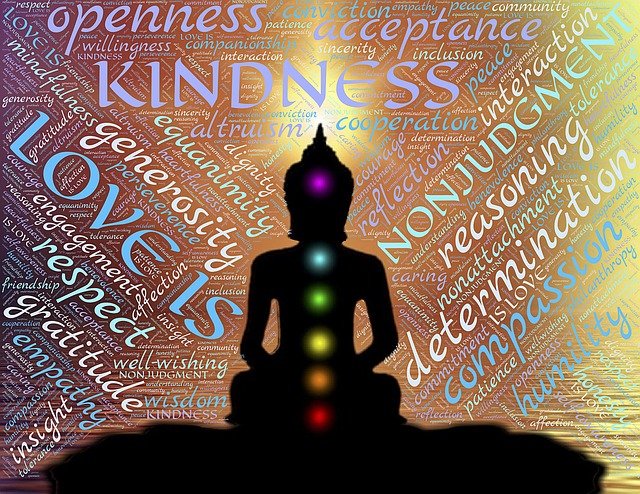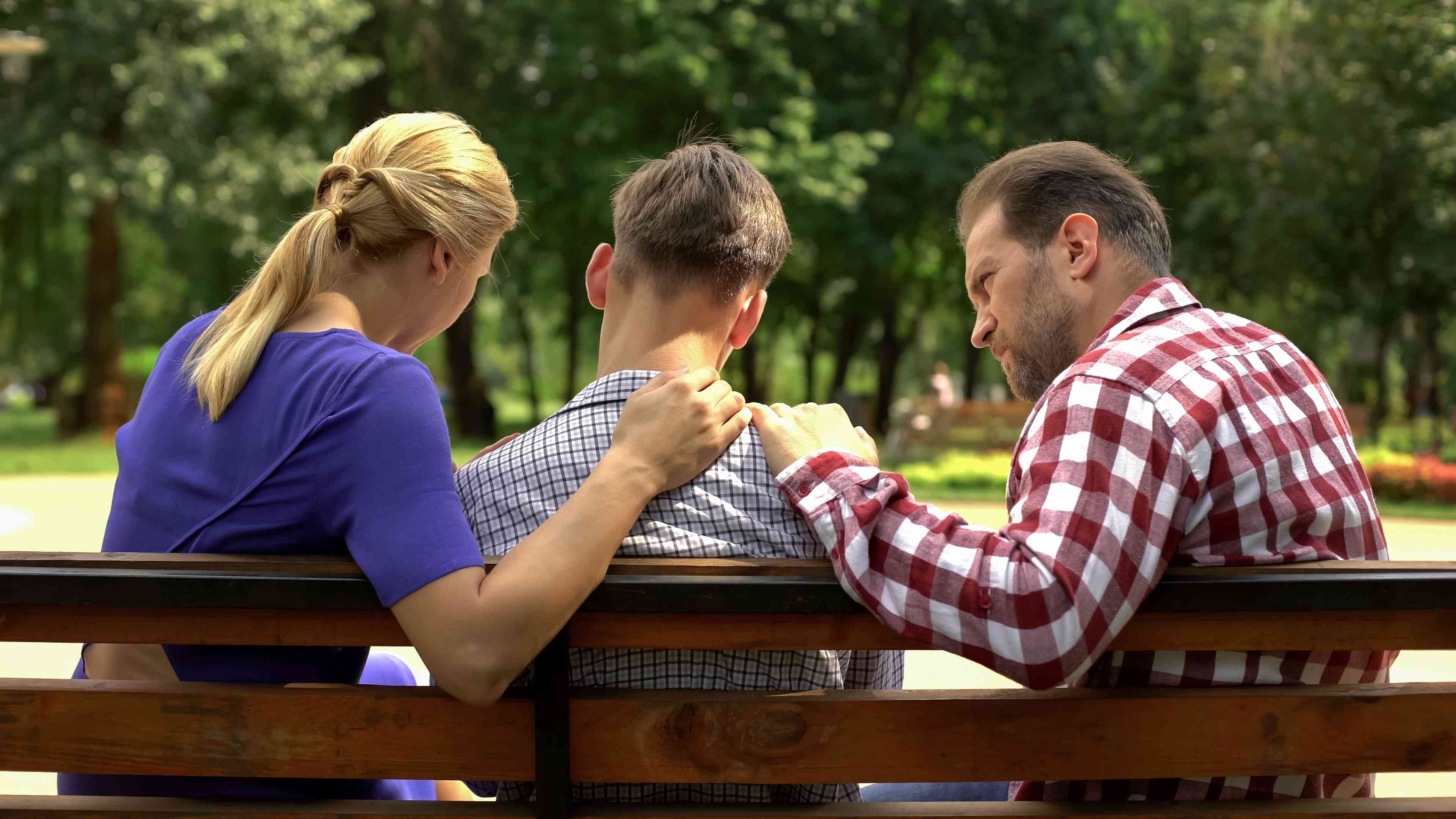
As COVID lingers on, some wonder, “Will this ever end?” and “How will I ever get through this?” How many times have you asked yourself the latter question? We wonder how we will navigate the tough stuff of life. It’s not until the event or experience is fully in the rearview mirror that we are able to realize that we made it through. That is when we can experience the sigh of relief and maybe even a moment of joy and excitement. So how did we do it?
One aspect of getting through the tough stuff is resilience. But what is resilience, and how do we get it? Cornell Health, in their web article, Building resilience (n.d.), defined resilience as “your ability to cope with and bounce back from stress and adversity, and hopefully even grow through the experience. It is sometimes referred to as “thriving” … and not just surviving.” Isn’t that what most of us want? We don’t just want to survive, we want to thrive!
How do I get resilience? That’s the twenty million dollar question. Is it a matter of some being born with it and some are not? If not, can one learn to be resilient? Thankfully there has been much research done on this topic and the consensus seems to indicate that it can be learned. What better time than during this long period during COVID for us to explore this helpful resource.
When I work with my clients, we frequently get curious about the influences that have shaped our lives. Part of that exploration takes us to look at family and caretaker influences, such as how our parent parented us. Many have had supportive and empowering upbringings that offered a hopeful and empowering perspective. The wonderful thing though is that resilience can still be learned even if one has not had that type of upbringing! One can learn about the lens in which the world is seen. Does the person tend to have a negative outlook, lack confidence, and see experiences as permanent and unchanging? These are some of the influences that detract from resilience. The key here is awareness. Once aware of this outlook, we can begin to look at finding a new lens to look through. Here are some of the ways to help shape a resilient perspective.
Social involvement
Staying connected with others, particularly positive, encouraging and supportive others, is most helpful. How, one may ask, in the middle of social isolation are we to be socially involved? Thankfully there are options. While not the end all be all, technology has offered us virtual engagement, there is still the telephone, and we can have socially distanced visits. While COVID challenges us in this way, we might dare to think outside the box to find new ways of connection. Many of my clients have been surprised to find new ways of connecting with friends and loved ones that they never thought possible.
Meaning and Purpose
COVID doesn’t make much sense. We might start asking why COVID? Resilience might be better fostered by asking “What Now?” When we ask that question, we start to be able to consider how we might make meaning and find purpose in this and the other painful and challenging experiences in our lives. One of my favorite books is Man’s Search for Meaning, by Viktor Frankl (1959). Frankl talks about his experience as a prisoner in the concentration camps during the Holocaust. He described what fostered resilience for him. These quotes exemplify resilience:
“Everything can be taken from a man but one thing: the last of the human freedoms—to choose one’s attitude in any given set of circumstances, to choose one’s own way.”
“When we are no longer able to change a situation, we are challenged to change ourselves.”
We, too, can start to look for meaning and find purpose in our circumstances. Some examples I have heard about are those who make masks for the blind, shop for the elderly, and just general everyday kindness and patience with other during COVID. These are all examples of meaning and purpose in the midst of difficulty.
Self-Awareness and Self Care
These are essential for our mental health and resilience in particular. If we are tired, stressed, and/or hungry, it makes it difficult to concentrate and use our mental, spiritual and emotional resources to our advantage. The key here is to give attention to yourself. I always encourage my clients to remember to check in with themselves. From there, they can ask “What do I need?” Once we know what we need, we can find ways to get it. Sleep, eat, get a hug, pray, exercise.
Healthy Thinking Habits
This seems easier said than done. The good news…this can be done. Surely it takes learning and practice. We can learn to notice our thinking and ultimately decide what we want to focus on. Some ways to learn this are through counseling, prayer, talking with others, visualization, and affirmations. Many find that their faith is a comforting support and contributor to resilience. It can also be helpful to learn to use flexible vs. rigid (all or nothing) thinking. The Serenity prayer is a wonderful prayer for this:
“God, grant me the serenity to accept the things I cannot change; the courage to change the things I can; and the wisdom to know the difference.” (Source unknown)
This allows us to focus on the areas in which we feel empowered to make a change. Additionally, looking at past experience to recognize examples of times that one overcame a challenge can be helpful. These are reminders that we have resilience and that challenges are temporary.
We certainly don’t want to minimize the challenge that COVID and its by-products have brought to our lives. By the same token, it is also exciting to know that COVID won’t break us. Not only will we survive COVID, we will thrive!
If you or someone you know is struggling with the impacts of COVID or any other of the many challenges life brings, please know that our therapists are here to help you. Please reach out to us through our website, www.pastoralcounseling.com We look forward to help you.
Sources:
Building Resilience (n.d.). Cornell Health. Retrieved August 10, 2020 from https://health.cornell.edu/resources/health-topics/building-resilience#:~:text=Cultivating%20social%20connections%20%E2%80%93%20and%20avoiding,performance%20and%20emotional%20well%2Dbeing.
Frankl, V. E. (1959) Man’s search for meaning. Boston, MA: Beacon
Serenity Prayer (Source Unknown).
–
Photo by Nacho Juárez from Pexels
Disclaimer: The views and opinions expressed in this article are those solely of the author and do not necessarily reflect the views and opinions of the Center for Pastoral Counseling of Virginia.
Request an Appointment
Individiual, Couples, Pre-Marital, Family,
Children's Counseling and Clergy Assessement
Was It Helpful To You?






